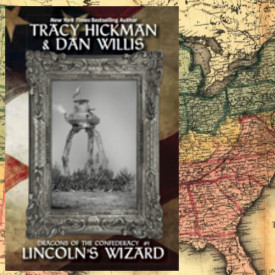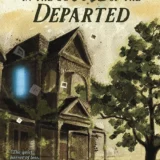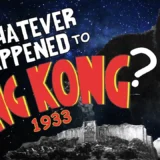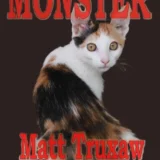What must it feel like to live in your own legend?
This is one of the key themes of Joe Abercrombie’s books: characters swept up in their own narrative, sometimes willingly, more often not. The burden of being a Named Man or a hero; the heart of the narrative, the one in the spotlight and the storybook.
Over the course of the six preceding books in the universe of The First Law, we’ve seen characters work their entire lives to become heroes, and others cross continents to run from their past. We’ve seen villains use stories to deceive and heroes deliberately foster lies. In The First Law, we read an entire trilogy set around manipulation—a conventional, page-perfect epic fantasy in which everything was a lie, and, yet, somehow it didn’t matter. In Best Served Cold, Abercrombie wrote a master-class on perspective: how heroism, vengeance, ambition, and cruelty are all different sides of the same coin, the same story. For The Heroes, Abercrombie developed a nasty little trick of presenting character after character—and then killing them off. He proved that everyone has a story, however short (or, in many cases, abrupt), but that doesn’t prevent the universe from being entirely random. It was rebellious, sneaky, and utterly perfect. Red Country was, perhaps, the most subversive of all: the series’ greatest hero, skulking through an entire book, as if hiding from his own story. It is only fitting that the greatest villains throughout the First Law universe often go nameless, or behind-the-scenes. They lurk in the shadows or stand well behind the throne. They hide from the light of the narrative.
A Little Hatred continues the theme: the temptation, and damnation, of being the center of the story.
The fragile peace that glues the Union together is crumbling, and the empire faces threats both internal and external. The Northmen are pressing, the workers are revolting, and behind it all, sinister entities seem to be working towards some greater, manipulative goal. But within this conventional (if very enjoyable) scrum, a handful of characters wrestle with their own individual roles. They are all, to various degrees, driven to make their own mark on this chaotic world. Most out of ambition, a few from guilt. One or two are even led by slightly worthier, if still confused, motivations. But all labor under the burden of the narrative: they feel compelled to be more than they are; to act in the image of greatness, to perform for history. For Sabine, a deliciously piratical businesswoman, the obsession with her presentation comes at the cost of hour-upon-hour of painful, corseted dressing, and a crippling fear of ever appearing weak. Prince Orso suffers the burden of being the heir apparent. Knowing he’s not up to his future responsibilities, he creates a narrative of uselessness and debauchery, and hides himself beneath it. Others, warriors such as the ‘Young Lion’ and the ‘Great Wolf’ are even more obvious in their intent: they create nicknames for themselves, take dangerous risks on the battlefield, and eschew strategic deliberation in favour of the most valorous, and vainglorious, approaches.
Fittingly, the many leading characters of A Little Hatred are also united by their relationship with their parents, the characters from the previous books. They seek to impress them and earn their respect—but also, more tellingly, to compete with them, to prove themselves. It is, accordingly, a rambunctious teenager of a book: violent and hormonal, argumentative and gratuitous. It is rapid-fire; short chapters, cliff-hangers, constant action and quip-laden dialogue. Characters are established, tested, undermined and judged at pace. The sex is explicit, the violence more so.
This particular theme has greater resonance as well. By presenting generational friction so overtly, the author openly embraces the inevitable comparisons between A Little Hatred and The First Law trilogy. Ten years ago, The First Law ended perfectly. It both resolved and undermined its central quest, providing the characters with karmically perfect endings, while still, ultimately, espousing the overall meaninglessness of it all. The three later, standalone books danced around the edges, but didn’t upset the fundamental resolution of the original trilogy.
A Little Hatred is therefore put in the awkward position of creating its own significance in a universe that has already established insignificance at its core. A decade on, the reader begins in a position of ironic self-awareness: we’re in on the joke. The counter-culture has become mainstream (perhaps there’s no better sign of this evolution than A Little Hatred’s market-generic cover, a startling contrast to the revolutionary The Blade Itself), leaving A Little Hatred boxed in. What can a poor sequel do to make its own mark—to create its own legend?

As the characters within would advise: you harden your heart. And then you burn it all down.
In The First Law, no fantasy tradition was sacred. Accordingly, in A Little Hatred, nor is The First Law. The book’s characters clearly resent living in the shadow of their elders, a sentiment clearly shared by the book itself. The much-lauded introduction of industrialization is not significant in and of itself, it is simply a means of destruction at scale: a mechanism for uprooting anything that reeks of the past. It is not uncommon for a sequel to reflect upon its predecessors; it is, however, unique for one to go to war with them. A Little Hatred scours its own shire, and throughly at that.
Which all adds up to the delightfully paradoxical nature of A Little Hatred. It is a book that could not exist without its antecedents, but spends every page trying to undermine them. It rebels against rebellion, without becoming conventional; it is a coming-of-age tale that deliberately eschews maturity and wisdom. It owes as much to the storytelling styles of gaming, film and television as literature. It is, perhaps even more than its predecessors, a book that could only exist at this point in time: a truly contemporary fantasy, even its core theme is the struggle to escape from the past.
Those using A Little Hatred as an ‘entry point’ to Joe Abercrombie, will, I suspect, enjoy it for sheer entertainment value, but miss the vast and tragic thematic underpinnings. Whereas those hungry to return to the world of the The First Law after a seven-year wait will be upset and rewarded in equal measure.
A Little Hatred is available from Orbit.
Jared Shurin is the editor of The Djinn Falls in Love, The Outcast Hours, The Best of British Fantasy, and many other published and/or forthcoming works. He writes irregularly at raptorvelocity.com and continuously at @straycarnivore.









Recent Comments